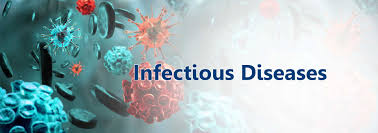Tips For Dealing With The Spread Of Disease
Now is a good time to remind us all of proper guidelines for controlling the spread of disease and viruses. While good hand-cleaning and proper procedures are always important, they are even more important now. One of the best ways to protect yourself is to practice the same prevention as you’ve heard before. Below are some good guidelines for hand-washing and other preparations.
 Take Everyday Precautions
Take Everyday Precautions
- Avoid close contact with people who are sick.
- Clean your hands often
- Wash your hands often with soap and water for at least 20 seconds, especially after blowing your nose, coughing, or sneezing, or having been in a public place.
- If soap and water are not available, use a hand sanitizer that contains at least 60% alcohol.
- To the extent possible, avoid touching high-touch surfaces in public places – elevator buttons, door handles, handrails, handshaking with people, etc. Use a tissue or your sleeve to cover your hand or finger if you must touch something.
- Wash your hands after touching surfaces in public places.
- Avoid touching your face, nose, eyes, etc.
- Clean and disinfect your home to remove germs: practice routine cleaning of frequently touched surfaces (for example: tables, doorknobs, light switches, handles, desks, toilets, faucets, sinks & cell phones)
- Avoid crowds, especially in poorly ventilated spaces. Your risk of exposure to respiratory viruses may increase in crowded, closed-in settings with little air circulation if there are people in the crowd who are sick.
- Avoid all non-essential travel including plane trips, and especially avoid embarking on cruise ships.
- Keep space between yourself and others. The advised distance is 6 feet.
Have Supplies On Hand
- Contact your healthcare provider to ask about obtaining extra necessary medications to have on hand in case you need to stay home for a prolonged period of time
- If you cannot get extra medications, consider using mail-order for medications.
- Be sure you have over-the-counter medicines and medical supplies (tissues, etc.) to treat fever and other symptoms.
- Have enough household items and groceries on hand so that you will be prepared to stay at home for a period of time.
Have a Plan In Case You Get Sick
- Consult with your health care provider for more information about monitoring your health for symptoms.
- Stay in touch with others by phone or email. You may need to ask for help from friends, family, neighbors, community health workers, etc. if you become sick.
- Determine who can help you if your helper gets sick.
